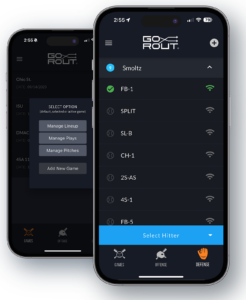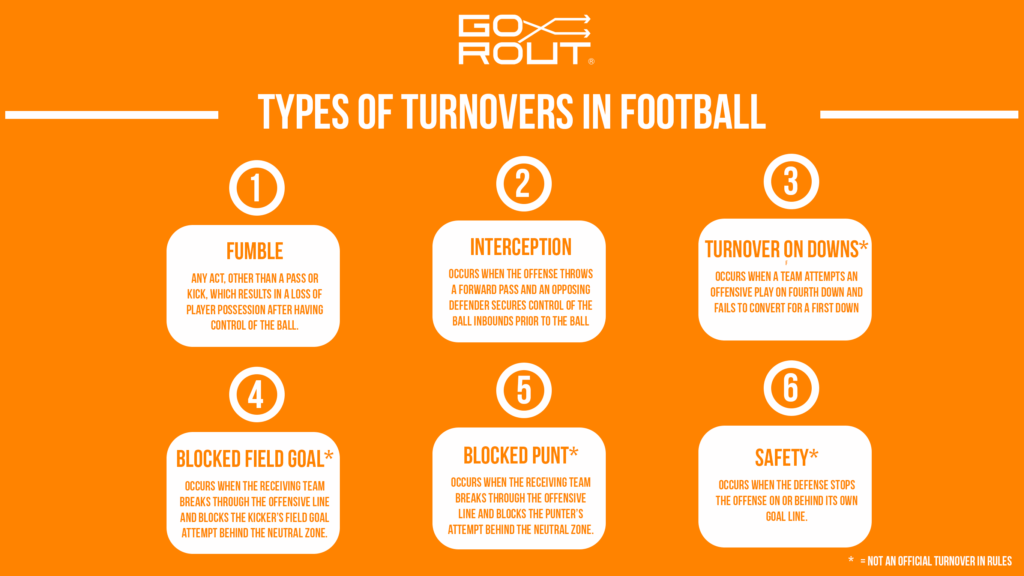Softball Coaching: Tips, Tools and Strategies for Success
Reading Time: 10 minutes
Reading Time: 10 minutes
Softball is a sport that demands skill, strategy, hard work, and dedication. As a coach, you are responsible for using the right tools and techniques to help your team achieve their full potential.
To help you achieve your goals faster, in this extensive guide, we will cover every aspect of successful softball coaching, from establishing a solid team foundation to incorporating the latest trends in sports.
You will also learn about the significance of effective on-field communication and how the GoRout Diamond system helps you ensure your players never miss a sign.
So, let’s begin!
The Role of a Softball Coach

Softball coaches know how to call pitches in softball, but there is so much more to the game than that.
They serve as leaders who guide and inspire their players on and off the field. Coaches create an environment where players can thrive by encouraging a positive and supportive team culture through teamwork, respect, and sportsmanship.
Coaches are also instrumental in developing the skills of their players.
They design and implement training sessions, drills, and practice plans to improve players’ hitting, pitching, fielding, throwing, and base-running abilities. They also make strategic decisions during games, including creating lineups, giving signs, and adjusting the game plan to adapt to different opponents and game situations.
In addition to their coaching duties, the coaching staff acts as mentors and role models for their players. They share important life lessons about discipline, resilience, and teamwork that players can apply on and off the field.
The Essential Qualities of a Head Coach
Certain qualities distinguish an excellent softball coach. Here are the most important ones.
- Strong leadership skills: The head coach sets the tone for the team, establishes goals and provides direction on and off the field.
- Effective communication abilities: The coach must communicate strategies, expectations and feedback to athletes, assistant coaches and support staff.
- Deep understanding of the game: It allows the coach to design game plans and make strategic decisions during competition.
- Adaptability and flexibility: A head coach adjusts tactics and approaches based on the team’s strengths, weaknesses and changing circumstances throughout the season.
- Motivational and inspirational capabilities: These are paramount for promoting a positive team culture and maximizing performance.
- Updated practice plans and methodology: Softball coaches use innovative sports technology, focusing on performance metrics, communication, and mechanics, to keep their coaching strategies up to date.
Key Softball Coaching Tips, Strategies and Tools
To have a successful season of softball coaching, you must master key strategies and tools. Building a solid team foundation and implementing advanced coaching techniques into your plan will help you stay current.
Effective recruitment tactics, ample game-day preparation strategies, and enhancing player motivation with continuous learning and development are all important aspects of coaching softball.
Building a Solid Team Foundation
Recruitment strategies should align with team values and goals to build a strong foundation. Coaches foster team chemistry, where players feel valued and connected, and promote teamwork on the field.
Effective recruitment strategies
Coaches meticulously evaluate the team’s requirements and goals to recruit suitable athletes. A coaching staff will assess potential players at tournaments and showcases, and check in on referrals from other coaches.
Establishing strong communication channels with recruits by highlighting the program’s strengths, development opportunities, and supportive team culture will greatly influence a recruit’s decision.
Fostering team chemistry
Coaches play an important role in creating an environment where players feel connected, respected, and motivated to work together towards shared goals. They do this by prioritizing team-building activities that foster teamwork and trust among players.
When players feel free to communicate openly, they can express themselves and address concerns or conflicts. A positive team culture is built on mutual respect, support, and accountability.
Planning and Conducting Productive Softball Practices

Effective softball practices are dynamic, purposeful and tailored to the team’s needs. Maximize the productivity of your softball practices with essential drills for player skill development and teamwork.
Creating a dynamic practice schedule
A softball coach organizes training sessions by balancing skill development, team strategy and player conditioning. The practice schedule incorporates warm-up exercises, skill-specific drills, scrimmages and conditioning routines.
Consider the time available for each practice and prioritize team weaknesses that need more attention. Flexibility is key for coaches, who can adapt the schedule based on player performance, injuries, and upcoming games.
Essential drills for skill development
The NFCA recommends these three drills for skill development in softball:
- Four Corners Bunting Drill: Players are divided into groups and stationed at each base, with a coach positioned in the middle. The coach tosses balls to the players, who must execute various bunting techniques towards the designated bases. This drill focuses on improving bunting technique and accuracy.
- Bucket Drill: Fill a bucket with 20 balls and line up all the players on the team. Each player has to field 20 balls (a full bucket) cleanly and consecutively. If player No.1 fields 20 cleanly, they move to the side and cheer on their teammates. If player No. 2 fields 11 cleanly and then makes an error, they must start back over at 0. Do this drill at the end of practice, and end the practice only once every player has completed their bucket.
- Relay Drill: Split the team evenly at second base and home plate. On the coaches mark, the first player in each line starts to run the bases. When they make it back to their starting position, they tag (like in a relay race) the next player in their line and that player races around. The first group to completely get around the basepath and back to their starting position wins.
Game Day Preparation Strategies

Preparing for a softball game requires mental focus, communication, team cohesion, and physical readiness.
Pre-game routines and warm-ups
Athletes engage in pre-game routines and warm-up exercises to physically prepare their bodies, increase blood flow to muscles, and enhance flexibility and range of motion.
These routines help minimize the risk of injuries during games, and they also help mentally prepare the athlete for the game ahead.
Pre-game warm-up exercises often include stretching, jogging, light cardiovascular activities, and plyometric drills tailored to the sport. Coaches also use batting practice and infield/outfield drills to warm-up game skills and fundamental techniques before the game begins.
In-game management
Powerful in-game management allows coaches to make strategic decisions and adjustments that can influence the game’s outcome.
Effective management requires keen observation, tactical analysis, and quick decision-making under pressure. To be successful, coaches need to be proactive in assessing the game’s flow, analyzing opponent strategies, and evaluating their team’s performance to identify areas for improvement, such as pitching changes, defensive alignments, or pinch hitters.
Effective coach-to-player communication systems are crucial for executing planned strategies and adapting to changing game situations on the fly. These systems facilitate quick and efficient information transfer between coaches and players, allowing seamless adjustments during the game.
Advanced Techniques for Coaching Softball
Sports coaching technology has revolutionized how coaches analyze, strategize and train their softball teams. These advanced solutions provide practical insights, data-driven analysis and innovative communication methods for player development and winning performances.
Coach-to-player communication systems

An effective coach-to-player communication system can turn any good coach into a great one.
GoRout Diamond is a single-touch pitch-calling system, popularly used in-game at the college level. It offers coaches endless opportunities to enhance communication. Softball coaches can swiftly send pitch calls, defensive adjustments, and any other signals to batters and baserunners on the field.
The system’s versatility ensures that no player misses a sign.
GoRout softball features

All GoRout equipment is designed to withstand harsh weather, has a long-lasting battery life, and is highly durable for intense softball practices and games. Let’s discuss its key components.
On-field coaches app

The on-field coaches app offers a seamless experience. With the intuitive interface and advanced functionalities, coaches can effortlessly create pitch calls, offensive strategies and defensive shifts with just a single touch.
On-field players device
On-field player devices allow for position-specific messaging as well as an advanced catcher’s wristband system for pitch calling. The devices are ready to use right out of the box with no setup, pairing or programming required. They come pre-configured and encrypted, so your players can start receiving play calls immediately.
GoRout Diamond is a sports technology system built to send encrypted play calls from coaches to players in real time. It is unique because it is powered by a proprietary system called GoRout Air™, which does not require Wi-Fi to operate.
GoRout Diamond uses radio waves to enable communication between devices and covers the entire US through a national infrastructure. This system allows seamless data transfer without disruptions, making it a reliable tool for softball teams.
GoRout provides fully customizable team packages starting from a single device. Plans can be expanded at any time and include a 100% full-coverage warranty for breakage.
Get a quote now.
Video analysis software
Video analysis software allows coaches to capture, examine and review pitch and swing footage with precision and detail.
Coaches can use video analysis software to study players’ techniques and mechanics in real time or slow motion. This analysis helps coaches identify areas for improvement and provide targeted feedback.
Video tagging features simplify the categorization and organization of clips based on specific criteria – pitch type or batting mechanics.
Performance tracking wearables
Wearable technology in sports, such as fitness trackers and GPS sensors, monitors athletes’ performance.
These devices can track an athlete’s speed, distance covered, acceleration, and heart rate, which helps assess the player’s fitness levels, conditioning, and workload.
Coaches can use this data to personalize training programs based on player needs, optimize recovery strategies, and prevent injuries.
Drill and practice planning apps
Softball drill and practice planning apps provide pre-designed drills covering different skill levels and aspects of the game, such as hitting, pitching, fielding and base running. Coaches use this technology to customize drills, adjust difficulty levels and target areas for improvement.
These apps offer practice plan creation, drill scheduling, and time management for training sessions. Advanced solutions, like GoRout Diamond, provide softball coaches with a communication system for practice and games.
Enhancing Player Motivation and Performance
Motivation is a key factor in driving player performance and achieving success in softball. Coaches create a motivating environment by setting goals and providing positive feedback.
Setting and achieving goals
Coaches collaborate with players to establish both challenging and achievable goals in the short and long term. These goals should be specific, measurable, relevant, and time-based, providing a clear roadmap for success and improvement.
Once goals are set, coaches offer continuous support and encouragement to help players stay focused and motivated to play.
Positive reinforcement and feedback
Coaches use positive reinforcement techniques to motivate players, increase their confidence, and reinforce desired behaviors and actions on the field.
They recognize good timing and well-executed plays, praise effort, and celebrate achievements in a supportive environment, encouraging players to aim for excellence. Constructive feedback helps players improve their performance and refine their techniques.

For example, coaches can use GoRout’s position-specific messaging to send feedback to individual players on the field, helping them learn from mistakes and continuously improve in softball.
Season and Career Planning in Softball Coaching
Season planning involves considering multiple factors such as team dynamics, competition schedules, and training regimens. It’s important to set clear seasonal objectives to help achieve success.
Conversely, career planning focuses on aligning individual player aspirations with growth opportunities, such as college or professional softball leagues.
Coaches play a key role in guiding athletes through career pathways. They provide mentorship, resources, and opportunities for advancement, and with their help, players can achieve their career goals and reach their full potential.
Developing a seasonal game plan
Softball coaches create a plan for the season by assessing the team’s strengths and weaknesses, game schedules, and performance objectives. The seasonal plan includes training priorities, tactical strategies, and player development initiatives.
Softball coaches develop training programs focusing on refining skills, improving physical conditioning, and building team cohesion. They can adjust tactical strategies based on the opponent, which allows capitalizing on the team’s strengths and exploiting the opposition’s weaknesses.
The game plan offers opportunities for individual growth and team advancement.
Building a lasting coaching legacy
Each softball coach aspires to create a lasting legacy. This legacy is built on values, principles, and relationships formed over years of dedication to the sport.
By providing mentorship and guidance, coaches instill discipline, teamwork, and resilience in their players. A coach’s positive impact shapes the character of their players long after they have retired from playing.
To achieve a long-lasting coaching legacy, coaches must continuously improve themselves, embrace new strategies, technologies, and approaches, and stay true to their core principles.
Continuous Learning and Development During Coaching Journey

Continuous learning is one thing that leads to excellent softball coaching. Coaches strive to expand their knowledge, refine their leadership and stay current with the latest sports trends and innovations.
Professional development opportunities
Professional development can be instrumental in improving coaching skills, expanding knowledge, and keeping a head coach up-to-date with the latest industry trends.
As a softball coach, it is essential to attend coaching conferences, workshops, and seminars put on by organizations like the National Fastpitch Coaches Association (NFCA) and local softball associations.
Pursuing coaching certifications and continuing education courses can further deepen expertise and credentials in specific areas of coaching, such as pitching, hitting, or sports psychology.
Networking and mentorship
Events hosted by a small group of community members or the NFCA provide access to expert speakers and networking opportunities with fellow coaches. These softball professionals talk and teach a group of coaches like you about their experiences in the sport.
Networking events provide coaches access to a supportive community where they can seek advice, share experiences and gain valuable insights.
Resources like GoRout testimonials come from a network of coaches who have improved their team performance through fast and successful communication in practices and games. Reviewing insights about the latest innovations in the softball community can help coaching softball become a team effort.
Conclusion
Successful softball coaching involves strategic planning, developing skills and providing mentorship. To achieve this, you must build a solid team foundation, plan productive practices and employ advanced coaching techniques.
Sports coaching technology such as the GoRout Diamond softball communication system can enhance coaching strategies and help secure victories for the whole team.
Get a quote today, experience seamless communication in games and training, and feel confident about leading your team to success.
FAQs about Softball Coaching
How can I be a good softball coach?
Good softball coaches understand the game well. They know how their players perform, stay updated with technology, communicate openly, promote collaboration, and provide a positive culture for their players.
How do you structure a softball practice?
Softball practice plans divide your team practice into sections and stations. The team can rotate to different skill areas while being supervised by coaches.
How many coaches do you need for softball?
Teams can only have four assistant coaches in the dugout during games. There is a head coach, first base, assistant and bench coach.
How do you manage a softball team?
Effectively manage a softball team by having a routine for practices and games, knowing your player’s needs, trusting your instincts, paying attention to details, and staying calm and focused.
How do you coach softball practice?
Start coaching softball by knowing the rules and having the will to learn and commit to your team. To coach softball, you have to be able to lead your team with organization and well-thought-out practice plans.







